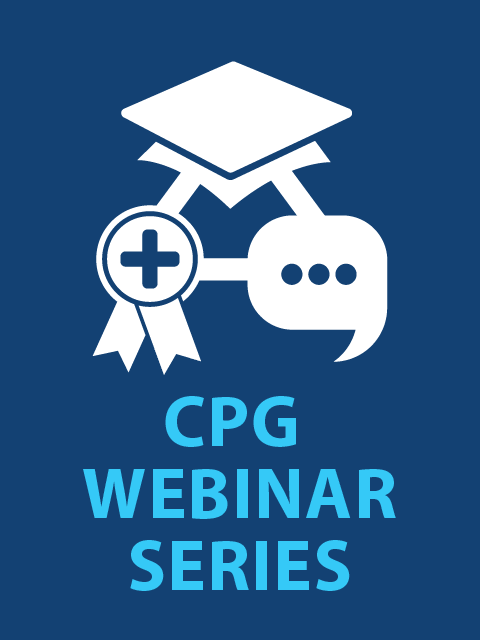MIRECC / CoE
6: Cognitive Behavioral Therapy for Suicide Prevention to Reduce Suicidal Ideation
Risk Management and Treatment » Non-pharmacologic Interventions
6: Cognitive Behavioral Therapy (including problem solving) for Suicide Prevention to Reduce Suicidal Ideation
We suggest offering cognitive behavioral therapy (including problem solving- based psychotherapies) focused on suicide prevention to reduce suicidal ideation for patients with a history of self-directed violence.
Strength:
Weak for
Category:
ReviewedNew-replaced
Grades and Definitions
- Strong for
- or "We recommend offering this option …"
- Weak for
- or "We suggest offering this option …"
- No recommendation
- or "There is insufficient evidence …"
- Weak against
- or "We suggest not offering this option …"
- Strong against
- or "We recommend against offering this option …"
Categories and Definitions |
||
|---|---|---|
| Evidence Reviewed* | Recommendation Category* | Definition* |
| Reviewed | New-added | New recommendation following review of the evidence |
| New-replaced | Recommendation from previous CPG that has been carried over to the updated CPG that has been changed following review of the evidence | |
| Not changed | Recommendation from previous CPG that has been carried forward to the updated CPG where the evidence has been reviewed but the recommendation is not changed | |
| Amended | Recommendation from the previous CPG that has been carried forward to the updated CPG where the evidence has been reviewed and a minor amendment has been made | |
| Deleted | Recommendation from the previous CPG that has been removed based on review of the evidence | |
| Not reviewed | Not changed | Recommendation from previous CPG that has been carried forward to the updated CPG, but for which the evidence has not been reviewed |
| Amended | Recommendation from the previous CPG that has been carried forward to the updated CPG where the evidence has not been reviewed and a minor amendment has been made | |
| Deleted | Recommendation from the previous CPG that has been removed because it was deemed out of scope for the updated CPG | |
| *Adapted from the NICE guideline manual (2012): The guidelines manual. London: National Institute for Health and Care Excellence;2012. and Martinez Garcia L, McFarlane E, Barnes S, Sanabria AJ, Alonso-Coello P, Alderson P. Updated recommendations: An assessment of NICE clinical guidelines. Implement Sci. 2014;9:72. | ||
Recommendation Resources
Recommendation 6 applies to cognitive behavioral therapy (CBT) focused on suicide prevention and includes problem-solving based psychotherapies. Resources specific to CBT for suicide prevention can be found on Recommendation 5. Resources for problem-solving therapy (PST) are included below. PST is one type of CBT specifically aimed at improving a patient’s ability to cope with stressful life experiences through active problem solving.
Training and Clinical Resources
This section includes recommended trainings and/or clinical resources about PST for suicide prevention.
- VA-provided PST resources
Updated Moving Forward: Overcoming Life's Challenges Web Course
- PST resources from professional organizations
- Problem-Solving Therapy for Depression | Society of Clinical Psychology
- Problem Solving Therapy Canada
- PST Canada Workshop recommended pre-reading
Manuals
This section includes recommended manuals about PST for suicide prevention.
Return to Resource OptionsWebinars
This section includes recommended webinars about PST for suicide prevention.
-
 Emotion-Focused Problem Solving Therapy and Suicidality Presented by Dr. Art Nezu
Emotion-Focused Problem Solving Therapy and Suicidality Presented by Dr. Art Nezu -
 Problem Solving Therapy for Suicide Prevention in VA Presented by Dr. Shannon Sisco
Problem Solving Therapy for Suicide Prevention in VA Presented by Dr. Shannon Sisco -
 Suicide Prevention 2.0 Clinical Telehealth Program Presented by Dr. Jessica A Walker
Suicide Prevention 2.0 Clinical Telehealth Program Presented by Dr. Jessica A Walker -
 Suicide Prevention 2.0 Clinical Telehealth: Implementation of an evidence-based psychotherapy program to reduce suicide behavior in U.S. Veterans Presented by Dr. Jessica A Walker
Suicide Prevention 2.0 Clinical Telehealth: Implementation of an evidence-based psychotherapy program to reduce suicide behavior in U.S. Veterans Presented by Dr. Jessica A Walker
Podcasts
This section includes recommended podcasts about PST for suicide prevention.
- PTSD Bytes Podcast Series
 Problem Solving Therapy with Dr. Shannon Sisco
Problem Solving Therapy with Dr. Shannon Sisco
Articles
This section includes recommended articles about PST for suicide prevention.
- (2017). Problem-solving therapy for suicide prevention in veterans with moderate-to-severe traumatic brain injury. Rehabilitation psychology, 62(4). 600-608. https://doi.org/10.1017/S104161022000397X
- (2021). Problem-solving training for Veterans in home based primary care: an evaluation of intervention effectiveness. International psychogeriatrics, 1-12. Advance online publication. https://doi.org/10.1037/rep0000154
- (1999). Manual-assisted cognitive-behaviour therapy (MACT): a randomized controlled trial of a brief intervention with bibliotherapy in the treatment of recurrent deliberate self-harm. Psychological medicine, 29(1). 19–25. https://doi.org/10.1017/s003329179800765x
- (2005). Randomized controlled trial of a brief problem-orientation intervention to suicidal ideation. Behavior Therapy, 35(4). 323-333. https://doi.org/10.1016/S0005-7894(05)80114-5
- (2000). Psychosocial versus pharmacological treatments for deliberate self harm. The Cochrane database of systematic reviews, (2). CD001764. https://doi.org/10.1002/14651858.CD001764
- (2014). Brief psychological intervention after self-harm: randomised controlled trial from Pakistan. The British journal of psychiatry : the journal of mental science, 204(6). 462–470. https://doi.org/10.1192/bjp.bp.113.138370
- (2017). Social problem solving moderates emotional reactivity in predicting suicide ideation among U.S. Veterans. Military Behavioral Health, 5. 417-426. https://www.tandfonline.com/doi/abs/10.1080/21635781.2017.1337595
- (1990). Cognitive-behavioural problem solving in the treatment of patients who repeatedly attempt suicide. A controlled trial. The British journal of psychiatry: the journal of mental science, 157. 871-876. https://doi.org/10.1192/bjp.157.6.871
- (2009). Comparing cognitive behavior therapy, problem solving therapy, and treatment as usual in a high risk population. Suicide & life-threatening behavior, 39(5). 538–547. https://doi.org/10.1521/suli.2009.39.5.538














 Problem-Solving Therapy: A Treatment Manual Supplement
Problem-Solving Therapy: A Treatment Manual Supplement





